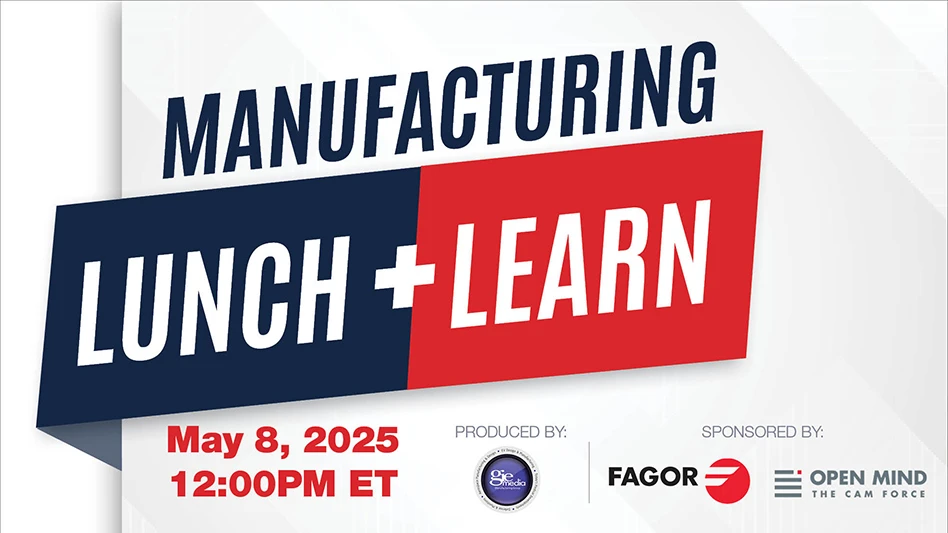
Master Fluid Solutions
In September, the U.S. Government launched the National Biotechnology and Biomanufacturing Initiative, an effort to increase biotech manufacturing capacity in the U.S. Among other things, the initiative allocates funds to improve manufacturing infrastructure in partnership with the Department of Defense.
This investment follows a wave of private sector investments in biotech manufacturing and growing demand for more medical equipment following the COVID-19 pandemic. It even dovetails with the growing emphasis on reshoring operations as a way to guard against future supply chain disruptions.
The U.S. needs more manufacturers, particularly in the metalworking sector, to step up the plate and meet demand. What can domestic manufacturers do to help?
The opportunity available to manufacturers
Over the next five years, the U.S. government will invest more than $1 billion into projects building up and improving domestic biotech manufacturing infrastructure. At the same time, the market value of medical device manufacturing is expected to rise to more than $45 billion in 2023. Leaders who pivot into this space have an incredible amount of opportunity to capitalize on.
It’s also an opportunity to be of genuine service to the community. Through the initial stages of the pandemic, the media highlighted a number of inspiring stories of manufacturers pivoting to produce much needed ventilators and other key medical equipment for our overburdened healthcare system. Now we need this kind of response on a more permanent basis.
What biotech and healthcare need from the manufacturing sector
The market has demand, and the federal government is funding a massive boost to manufacturing infrastructure. If manufacturers want to pivot into this new field, they have resources available to them. Here’s what they need to do:
Adopt holistic lean manufacturing
One of the biggest keys to manufacturing for biotech and the medical sector is fast response times. While the value of lean practices are now in question for international supply chains, for domestic manufacturers supporting healthcare, lean makes perfect sense. End-users need suppliers with short response times, which requires flexible production schedules, rapid scalability, and smaller warehouse stocks.
Achieve compliance
Medical equipment manufacturers face an increasing regulatory environment on par with the most stringent industries. Since medical implants will live inside the body for many years, it’s critical to prevent any possible issues to ensure a healthy population.
Manufacturers may have restrictions from using specific chemicals that could be hazardous if absorbed in the body, and cutting fluids must meet specific requirements and approval processes. Medical-grade cutting fluids are becoming increasingly important for manufacturers to meet these compliance regulations while improving performance.
Lower costs
Per capita, the U.S. has some of the highest healthcare costs in the world. To keep products and services affordable for patients, manufacturers are under incredible pressure to control their own production costs and improve downstream affordability. In addition to optimizing part quality with the right medical grade cutting fluid, manufacturers need to analyze how to evolve their processes to improve efficiency.
Upskill workers
The manufacturing skills gap has been a problem for decades, with employers struggling to find workers who can fulfill the needs of the industry. More recently, manufacturers and federal agencies alike have worked together to increase enrollment in trade and vocational schools and develop reskilling programs to increase the value of existing labor in the job market. Now, manufacturers moving into the biotech and medical equipment space need to ensure their workers are properly trained on technique, tools, and machinery for producing these products.
Biotech and medical equipment manufacturing aren’t just business opportunities – they’re callings that will improve resiliency and protect public health. Despite all the demand and funding for biotech and medical equipment manufacturing, it’s actually the manufacturers themselves driving change. Make the necessary improvements to your operation and workforce and you can be a part of the solution.
Latest from Today's Medical Developments
- Siemens accelerates path toward AI-driven industries through innovation and partnerships
- REGO-FIX’s ForceMaster and powRgrip product lines
- Roundup of some news hires around the manufacturing industry
- Mazak’s INTEGREX j-Series NEO Machines
- The Association for Advancing Automation (A3) releases vision for a U.S. national robotics strategy
- Mitutoyo America’s SJ-220 Surftest
- #56 - Manufacturing Matters - How Robotics and Automation are Transforming Manufacturing
- STUDER looks back on a solid 2024 financial year





